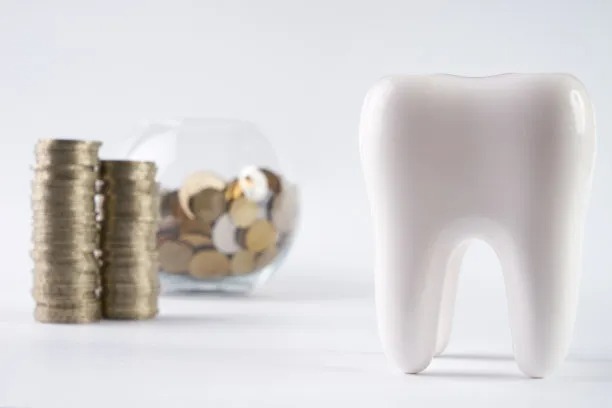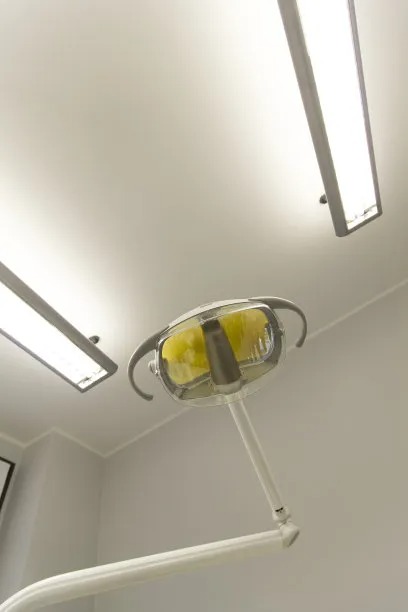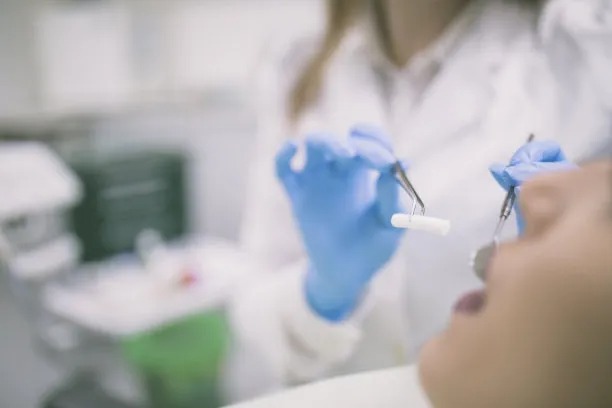Summary: Tooth extraction is often perceived with fear and anxiety, yet it plays a crucial role in promoting overall dental health. This article discusses the importance of extracting a tooth, highlighting the long-term benefits it brings to oral health issues. We will explore how tooth extraction helps prevent further dental complications, promotes healthy oral hygiene, enhances functionality, and opens pathways to modern dental solutions. By understanding these key aspects, patients can appreciate the necessity of tooth extraction as a proactive approach to maintaining their smile and dental well-being.
1. Preventing Further Dental Complications

One of the primary reasons for tooth extraction is the prevention of further dental complications. Decayed or infected teeth, if left untreated, can lead to severe issues such as abscesses or damage to adjacent teeth. When a tooth is less viable, extracting it can help mitigate these risks and safeguard surrounding teeth from potential harm.
Moreover, tooth extraction can help prevent the spread of infection in cases of periodontal disease. If the infection was to spread, it could compromise the health of the gums and bone structure, leading to a more complicated and extensive treatment process. By extracting the problematic tooth, it is possible to contain the infection and protect other teeth.
In essence, timely extraction can serve as a critical step in halting the progression of dental disease, allowing individuals to maintain better oral health in the long run. This proactive measure can save both time and financial resources associated with extensive dental procedures.
2. Promoting Healthy Oral Hygiene Habits
Tooth extraction can significantly enhance one’s oral hygiene routine. When a problematic tooth is removed, patients often find it easier to maintain their dental hygiene, as there are fewer areas for plaque and bacteria to accumulate. This removal can combat the build-up of harmful materials, thereby reducing the risk of cavities and gum disease in the future.
Additionally, the removal of damaged or infected teeth encourages patients to be more vigilant about their oral care. Post-extraction, patients are often motivated to adopt a more disciplined approach to brushing and flossing to protect their remaining teeth, leading to improved overall dental hygiene.
Dental professionals may also recommend tailored treatment plans following extraction, which often include education on proper care techniques and even dietary changes to further improve oral health. Such preventive guidance can promote lifelong healthy habits and empower patients to take charge of their dental health.
3. Enhancing Functionality of the Bite
Tooth extraction can contribute to better functionality of the bite, especially in cases of overcrowding or misalignment. When extra teeth are removed, the remaining teeth have more space to align correctly. This can lead to improved biting and chewing efficiency, as well as a more comfortable overall experience.
Moreover, properly aligning teeth can influence speech improvement. A well-aligned bite allows for clearer articulation, thus positively affecting communication. Patients often report increased confidence in their speech post-extraction, which can enhance their social interactions.
Correcting dental alignment via extraction can ultimately lead to a reduction in jaw strain and tension over time. This relief is crucial in preventing potential temporomandibular joint disorders, which can result in painful symptoms and further complications if neglected. Thus, enhancing functionality through tooth extraction can have wide-ranging benefits.
4. Opening Pathways to Modern Dental Solutions
Tooth extraction can also pave the way for modern dental solutions such as implants or bridges. Once a problematic tooth is removed, patients may find that they have improved options for replacing lost teeth that can contribute to both aesthetics and function.
Dental implants have gained popularity due to their longevity and effectiveness. They provide a more permanent solution compared to traditional dentures, enabling patients to enjoy their meals without discomfort. Additionally, the presence of implants can prevent bone loss in the jaw, which often occurs after tooth extraction.
Furthermore, bridges can effectively fill gaps left by missing teeth, resulting in restored functionality and a natural-looking smile. They can enhance overall dental aesthetics, leading to increased confidence. Therefore, an extracted tooth opens doors to significant advancements in dental restoration.
Summary:
Tooth extraction serves as a vital aspect of maintaining dental health, addressing issues that, if neglected, could result in complex dental dilemmas. From preventing complications and promoting proper hygiene to enhancing functionality and introducing modern solutions, extraction can be a necessary step for many individuals.
By understanding the numerous benefits associated with tooth extraction, patients can approach their dental care with a forward-thinking mindset, viewing these procedures not just as reactions to problems but as proactive measures for long-term well-being.
This article is compiled by Vickong Dental and the content is for reference only
Vickong Dental
Vickong Dental is a large medical group established in Hong Kong in 2008 by professors from well-known medical universities in Guangdong and Hong Kong, as well as medical doctors from key national '985' universities (including Master's supervisors and senior professors). The chain of branches brings together expert dentists with PhDs and Master's degrees from Hong Kong and Mainland China, committed to providing high-quality dental treatment.
"Vickong Dental Practices the University Motto of 'Healing and Serving Society,' with a Stable Operation for Sixteen Years. It Has Been honored with Hong Kong Enterprise Leaders's Choice,' and is a Global Trusted Implant Center for the Nobel Implant System. Recommended by Hong Kong Metro Broadcast and Guangdong Television, it Serves Customers from Over Thirty Countries and Regions, Gaining the Trust and Favor of Citizens from the Guangdong-Hong Kong-Macau Greater Bay Area and Surrounding Cities.

Thousands of customers' unanimous praise
The most recognized and highly recommended dental service by customers in the Guangdong-Hong Kong-Macau Greater Bay Area
We Ensure You Receive Detailed Care and Attention Here
Hong Kong standards, Shenzhen prices, Your Trusted English-speaking dentists

Vickong Dental Medical-Grade Instrument Disinfection Process
Vickong Dental Medical-Grade Instrument Disinfection Process

Vickong Dental Chain: A Warm and Comfortable Environment for Treatment






Appointment Hours

Q&A
Why choose Vickong Dental?
Vickong Dental practices the university motto 「Medicine to Benefit Society」, with each branch bringing together highly qualified dentists with doctoral and master’s degrees from Hong Kong and the Mainland, and has maintained seventeen years of steady operation。Recipient of 「2024 Hong Kong Enterprise Leaders Brand」, 「2025 Hong Kong Enterprise Leaders Brand」, a Nobel Biocare Global Trusted Implant Center, and a brand recommended by Metro Radio Hong Kong and Guangdong TV。
To date, we have served customers from more than thirty countries and regions,earning exceptionally high word-of-mouth recognition and trusted recommendations from residents across the Guangdong-Hong Kong-Macao Greater Bay Area and surrounding cities
We have eight major branches in Zhuhai、Shenzhen,and a consultation and service assurance center in Hong Kong,so you can book a free consultation at any time for any questions,which is very reassuring.
If I do not accept the quotation after the CT scan, will I be charged??
No! As long as the actual treatment has not started, you will not be charged any fees.
Will there be any additional charges during the treatment process?
No, there won’t be any additional charges. Before treatment begins, we will clearly explain the treatment plan and its corresponding fees. Only after the patient agrees and signs the consent form will we proceed with the dental service.
Can I pay in Hong Kong dollars?
Yes. Vickong Dental accepts payment in Hong Kong dollars. The amount will be converted based on the exchange rate of the day, and the applicable rate will be clearly communicated to you in advance.
Can I reschedule my appointment at any time?
Yes. Please contact us via **WeChat** or **WhatsApp** as early as possible, providing your original appointment time and details, along with your preferred new date and time slot for rescheduling.













